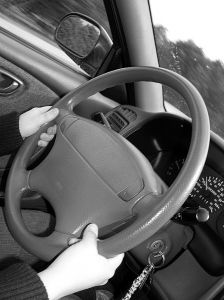Fatigued driving is probably familiar to every driver, especially early morning commuters and those driving late at night. While some may think that getting behind the wheel fatigued can be harmless, it is actually quite dangerous. In fact some studies suggest that drowsy driving is just as dangerous as drunk driving.

Causes of Drowsiness
There are many risk factors associated with drowsiness, such as chronic sleepiness caused by frequent lack of sleep, acute sleep loss, and work shifts. A variety of circumstances can account for acute sleep loss like taking care of children, vacations, short-term work demands, and social events. Irregular work schedules, late night or overtime shifts may throw off a person’s internal clock and lead to increased sleepiness. The amount of time a person spends behind the wheel can also contribute to their level of fatigued. Tractor trailer drivers, for example, often experience fatigue because of the many hours they spend on the road.
Lack of sleep is not the only reason for drowsiness. Potent medications like sedatives, antidepressants or antihistamines used to treat allergies and colds, and even alcohol consumption can influence levels of tiredness.
The Dangers and Warning Signs of Drowsy Driving
Boston is surrounded by major highways and interstates like the Mass Pike, Routes 128, 495, 93 and 95. It is important to be vigilant of dangerous drivers and be aware of your own driving habits. According to a study by AAA, drowsy driving accounts for 17% of all motor vehicle accidents in the United States. Unlike drunk driving accidents, where a driver’s blood alcohol content can be measured, there is no objective way to measure how tired a person is.
Continue reading
 Boston Car Accident Lawyer Blog
Boston Car Accident Lawyer Blog










